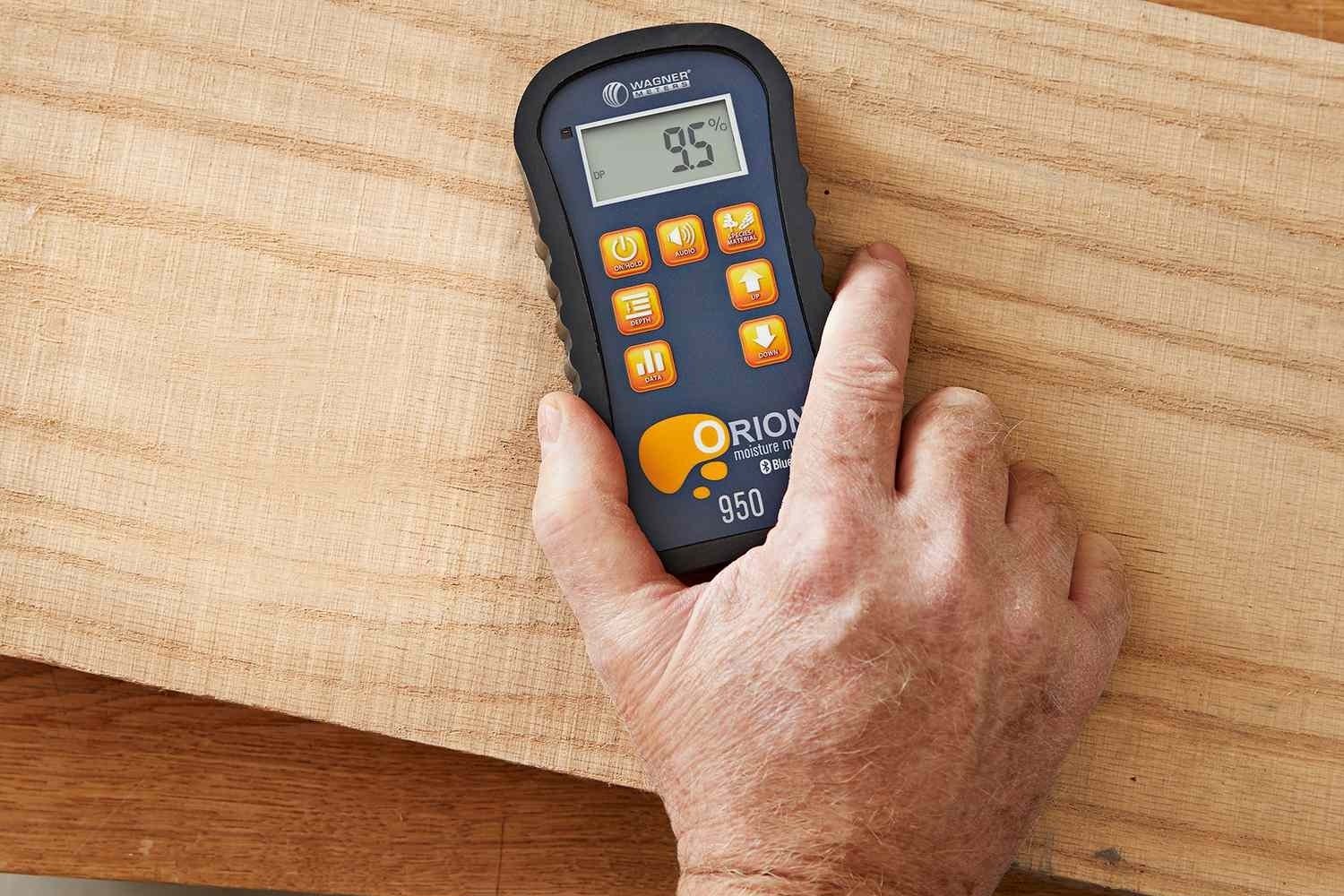
What is a moisture meter? A moisture meter is a handy tool used to measure the water content in various materials. Whether you're a gardener, woodworker, or construction worker, this device helps ensure materials are at the right moisture level. For gardeners, it checks soil moisture to keep plants healthy. Woodworkers use it to prevent wood from warping or cracking. In construction, it ensures building materials like concrete and drywall are dry enough to use. Moisture meters come in different types, such as pin-type and pinless, each suited for specific tasks. Knowing how to use one can save time, money, and effort.
What is a Moisture Meter?
A moisture meter is a device used to measure the moisture content in materials. These tools are essential in various industries, from agriculture to construction. Knowing the moisture level can help prevent damage and ensure quality.
- Moisture meters are used to measure the water content in materials like wood, soil, and concrete.
- They help in determining if materials are dry enough for use or need further drying.
- Moisture meters can prevent mold growth by identifying damp areas early.
- They are crucial in agriculture to monitor soil moisture for optimal plant growth.
- In construction, they ensure materials like wood and concrete have the right moisture levels before use.
Types of Moisture Meters
Different types of moisture meters are designed for specific applications. Each type has unique features and benefits.
- Pin-type moisture meters use two pins to measure electrical resistance in materials.
- Pinless moisture meters use electromagnetic signals to detect moisture without damaging the material.
- All-in-one moisture meters combine both pin and pinless features for versatility.
- Soil moisture meters are specifically designed to measure moisture levels in soil.
- Concrete moisture meters are tailored for use in concrete and other masonry materials.
How Moisture Meters Work
Understanding how moisture meters operate can help in choosing the right one for your needs.
- Pin-type meters measure the electrical resistance between two pins inserted into the material.
- Pinless meters emit electromagnetic waves that penetrate the material to detect moisture.
- The readings from moisture meters are usually displayed on a digital screen.
- Some advanced models can store data for later analysis.
- Moisture meters often have different settings for various materials to ensure accurate readings.
Applications of Moisture Meters
Moisture meters have a wide range of applications across different fields.
- In woodworking, they ensure wood is dry enough to prevent warping and cracking.
- Farmers use them to monitor soil moisture, ensuring crops get the right amount of water.
- Moisture meters help in detecting leaks and dampness in buildings, preventing structural damage.
- They are used in the paper industry to ensure the moisture content of paper is within acceptable limits.
- In the food industry, they help maintain the quality and shelf life of products by monitoring moisture levels.
Benefits of Using Moisture Meters
Using a moisture meter offers several advantages, making them indispensable tools in many industries.
- They help in maintaining the quality of materials by ensuring proper moisture levels.
- Moisture meters can prevent costly damage by identifying moisture issues early.
- They contribute to energy savings by optimizing drying processes.
- In agriculture, they help in water conservation by preventing over-irrigation.
- Moisture meters can improve the durability and longevity of materials by ensuring they are used at the right moisture levels.
Choosing the Right Moisture Meter
Selecting the appropriate moisture meter depends on your specific needs and the materials you are working with.
- Consider the type of material you will be measuring most frequently.
- Decide between a pin-type or pinless meter based on whether you need to avoid damaging the material.
- Look for features like data storage and multiple material settings for added convenience.
- Check the accuracy and range of the moisture meter to ensure it meets your requirements.
- Read reviews and seek recommendations to find a reliable and durable moisture meter.
Moisture Meters: The Unsung Heroes
Moisture meters are essential tools in various fields. They help farmers ensure crops get the right amount of water, preventing both drought and overwatering. In construction, these devices detect moisture in materials, avoiding potential damage and ensuring safety. Woodworkers rely on them to check the moisture content in wood, ensuring quality and durability in their projects. Homeowners use moisture meters to detect leaks and prevent mold growth, protecting their homes and health.
These handy gadgets come in different types, like pin-type and pinless, each suited for specific tasks. They’re easy to use, providing quick and accurate readings. Investing in a good moisture meter can save time, money, and effort in the long run. So, whether you’re a professional or a DIY enthusiast, having a moisture meter in your toolkit is a smart move.
Was this page helpful?
Our commitment to delivering trustworthy and engaging content is at the heart of what we do. Each fact on our site is contributed by real users like you, bringing a wealth of diverse insights and information. To ensure the highest standards of accuracy and reliability, our dedicated editors meticulously review each submission. This process guarantees that the facts we share are not only fascinating but also credible. Trust in our commitment to quality and authenticity as you explore and learn with us.
